 A man should learn to detect and watch that gleam of light which flashes across his mind from within, more than the lustre of the firmament of bards and sages. Yet he dismisses without notice his thought, because it is his. In every work of genius we... A man should learn to detect and watch that gleam of light which flashes across his mind from within, more than the lustre of the firmament of bards and sages. Yet he dismisses without notice his thought, because it is his. In every work of genius we...  An American Bible - Page 168edited by - 1918 - 372 pagesFull view An American Bible - Page 168edited by - 1918 - 372 pagesFull view - About this book
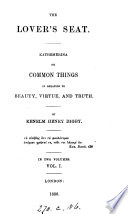 | Kenelm Henry Digby - 1856 - 418 pages
...of the firmament of bards and sages. Yet he dismisses without notice his thought, because it is his. In every work of genius we recognize our own rejected...teach us to abide by our spontaneous impression with good-humoured inflexibity." But, in fine, we should notice the gentle, pacific effects which the poetry... | |
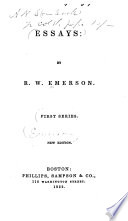 | Ralph Waldo Emerson - 1852 - 352 pages
...without notice his thought, because it is his. Jp <every work of genius we recognize our own rejected 1 thoughts : they come back to us with a certain alienated majesty. Great works of art have no more n affecting lesson for us than this. They teach us to abide by our spontaneous impression with good-humored... | |
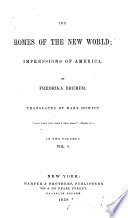 | Fredrika Bremer - 1858 - 702 pages
...of the firmament of bards and sages. Yet he dismisses without notice his thought, because it is his. In every work of genius we recognize our own rejected thoughts ; they conic back to us with a certain alienated majesty. Great works of art have no more affecting lesson... | |
 | 1864 - 98 pages
...Essay entitled "Self Reliance," ! makes the following remarks : — " In great works i of art there is no more affecting lesson for us than this : They teach us to abide by our spontaneous impressions with a good-humoured inflexibility, then most when the whole cry of voices is on the other... | |
 | M. S. Mitchell - 1870 - 416 pages
...the fact "—John Stuart Mill. A pause is used at a period, to mark the completion of sense; as, " In every work of genius we recognize our own rejected...come back to us with a certain alienated majesty. . . . "— Emerson. A long pause—several times the usual length of that at a period—is required... | |
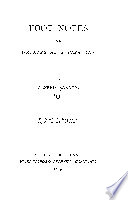 | Alfred Barron - 1875 - 336 pages
...he dismisses without notice his thought, because it is his. In every work of genius we recognize our rejected thoughts: they come back to us with a certain alienated majesty." IV. ALWAYS have a particular experience when I reach a certain point on the road to New Haven. I have... | |
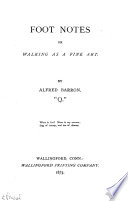 | Alfred Barron - 1875 - 344 pages
...he dismisses without notice his thought, because it is his. In every work of genius we recognize our rejected thoughts: they come back to us with a certain alienated majesty." IV. ALWAYS have a particular experience when I reach a certain point on the road to New Haven. I have... | |
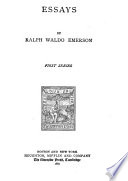 | Ralph Waldo Emerson - 1876 - 300 pages
...and sages. Yet he dismisses without notice his thought, because it is his. In every work of genins we recognize our own rejected thoughts : they come...the other side. Else, to-morrow a stranger will say \vith masterly good sense precisely what we have thought and felt all the time, and we shall be forced... | |
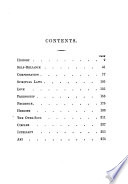 | Ralph Waldo Emerson - 1876 - 302 pages
...and sages. Yet he dismisses without notice his thought, because it is his. In every work of genins we recognize our own rejected thoughts : they come...Great works of art have no more affecting lesson for ns than this. They teach us to abide by our spontaneous impression with good-humored inflexibility... | |
 | Ralph Waldo Emerson - 1876 - 470 pages
...of the firmament of bards and sages. Yet he dismisses without notice his thought, because it is his. In every work of genius we recognize our own rejected...thoughts ; they come back to us with a certain alienated majesty.1 Great works of art have no more affecting lesson for us than this. They teach us to abide... | |
| |